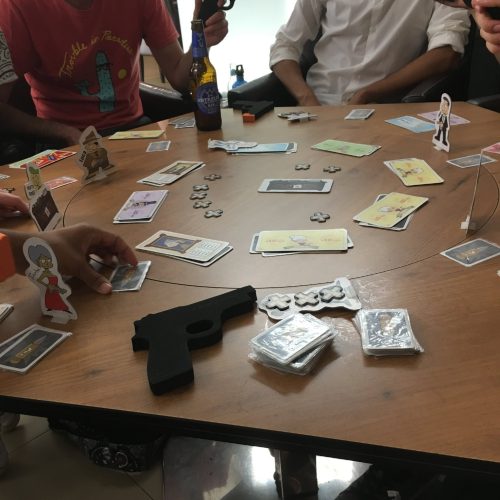
Confessions: I am a Different Person in Different Languages
Dear Peter,
I feel so lucky that we have had the opportunity to get to know each other, but have you ever thought about how I have never really talked with you in your native state of mind, aka in German? Now, you might tell me that it doesn’t matter, that the essence of your person is the same in all languages but, while I think this is true, I also think that the way we behave, talk, etc. in different languages can change. From my perspective this means that if you have only ever communicated with me in English (or Spanish or Portuguese) you may very well never see a part of me that you might otherwise get to know*.
Of course, this is all just my own personal theory, and you could argue that it doesn’t have any scientific background. However, I would disagree with you and say that there is something behind us acting and thinking differently in different languages and I have two reasons why:
1.) The linguistic aspect
The first reason that I feel like I am different people in different languages is twofold―my vocabulary knowledge isn’t the same in all languages and the way people express themselves in various languages is different.
This means that even though I consider myself to be fluent in the three languages that I speak, the words that I know flow differently in all three of them. There are some words that come out easier in Spanish, others that slip through in Portuguese, and some that I only know in my native tongue. I can literally be speaking any of these languages and insert words from the other ones because it is the vocabulary that has a ‘stronger’ presence inside my brain. Due to this variation, my ability to express myself changes in different languages**.
On the other hand, the way people express themselves and the words they use aren’t the same in different languages. Like Dani talked about, creepy doesn’t exist in Spanish so it is hard to communicate this feeling. In addition, the way people explain how they feel or how something works changes. For example, if I say I like someone in Spanish (as a friend) it is “me cae bien” which literally means “he/she falls me well;” or to express that something is possible they say “puede ser” which means “it could be.” These structural differences make it hard to say things the same way in different languages because saying things the same way doesn’t even exist. In turn, I believe this affects the way we think and communicate because our brains are wired differently.
2.) The cultural aspect
Culture plays a huge role in this second part of the linguistic aspect. I truly believe that culture impacts the reason we express ourselves the way we do―that is, the reason creepy doesn’t exist in Spanish is a cultural question in addition to a linguistic one. And when you are jumping into and immersing yourself in another culture, you learn a different way to express yourself. This difference, in my mind, transcends the vocabulary and the linguistic question and can even change the way you perceive the situation around you. How is this possible? If creepy doesn’t exist, how does your interpretation of creepy people or situations change? If the concept is not a part of your reality, you begin to perceive things without that meaning, therefore changing how you act and react to stimuli.
While we do want to dive a bit more into the importance of culture, for now I will leave it at this: The culture you are brought up in educates you in all aspects of your life and forms the way you think, behave, and interpret. This means that culture and language are ally intertwined and [personally I believe] they cannot be separated from one another.
Finding your ‘true’ self in your new language
Due to these two previous reasons, I think that it is really important for each individual to integrate themselves into a culture and language in the way that is best for them. This may mean taking a step back to make sure that you understand how you express yourself in another language and make sure that it fits cultural norms. And this is no mean feat―I still find that I may be too blunt when I speak with people, sometimes I unintentionally insult them when what I say is not mean in my mind, and I often find my myself appalled at the way Spanish people write emails (they can seem super rude to me).
I would also recommend that you have fun with learning about yourself in a new language. Let yourself be whoever appears, but remember that sometimes your communication will most likely need work before you can be confident that you are communicating what you truly wish to say.
Finally, allow yourself to be different and flow with your language skills―I truly believe that it is impossible to be exactly the same in all languages, so be flexible with your language skills and don’t get down on yourself when you cannot say exactly what you want to express, who knows, this way of saying things might not even exist.
Sincerely,
Spain
*This also means that I really like when I can speak in multiple languages with a person and is a huge motivator when it comes to learning a language―I can guarantee that the next language I learn is connected to people I care about.
**Different doesn’t necessarily mean better or worse, it is just different.




